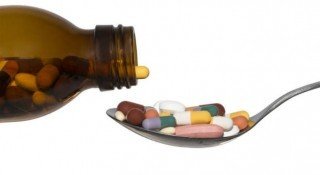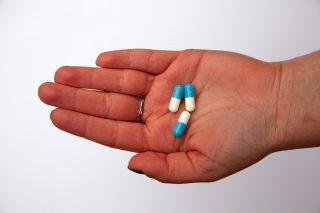In 2016, the World Health Organisation (WHO) first declared antibiotic resistance as one of the greatest threats to public health. The coronavirus pandemic has definitely completely changed the world we live in, from our economy to our mental health. Moreover, it’s also had quite an effect on the public health challenges that we were facing before COVID went global.
This then raises the question of how exactly has COVID-19 affected antibiotic resistance?
COVID-19 and Antibiotic Resistance
What is antibiotic resistance?
Antibiotics are drugs that work to prevent the growth of or kill microorganisms such as bacteria or fungi. Antibiotic resistance is when these microorganisms evade the effects of antibiotics.
Why is antibiotic resistance a problem?
Antibiotic resistance makes it more difficult and expensive to treat infections. In addition to causing resistance to malaria, HIV, and other bacterial infections, antibiotic resistance has also been linked to a higher risk for heart disease, stroke, and even cancer.

Lynn2511/Shutterstock
This may explain why antibiotic resistance is linked to 700,000 deaths a year. If that’s not enough, current trends suggest that the annual death toll will be greater than 10 million by 2050.
Moreover, antibiotic resistance can also be harmful to the environment as antibiotics are given to humans and animals are excreted. As manure is used as a fertilizer, this can cause contamination, which can then lead to either the spread of resistant bacteria or the emergence of a new resistant bacterium (1).
How is COVID-19 increasing antibiotic resistance?
“During the pandemic, we see even now that antibiotic resistance is rising more and more as a result of treatment of COVID-19 patients,” said Melita Vujnovic, the World Health Organization (WHO) Representative in Russia.
Vujnovic added: “The main goal of the WHO’s international mission is to inform the population about antibiotic resistance. This topic is the focus of the countries’ governments and specialists, we need to coordinate our efforts to stop the spread of resistance to medicines,”
What has research found?
- A study published in Clinical Infectious Diseases found that 72% of patients diagnosed with Covid-19 were given antimicrobials, even though only 8% of positive COVID patients were diagnosed with bacterial or fungal infections.
- A study conducted by The Pew Charitable Trusts found that:
- 96% of COVID patients received an antibiotic prescription given before a bacterial infection was even confirmed.
- 52% of COVID patients captured in this study resulted in at least one antibiotic prescription.
How did this happen?
1. Misinformation
An article published in BMJ cites misinformation as one of the biggest contributors to the overuse of antibiotics during the pandemic.
2. Over-prescription as a precaution
Health practitioners may prescribe antibiotics as a precaution, especially if they want to reduce the risk of you developing secondary infections. These infections can be quite harmful, so this line of thinking is understandable.

Photo by Mark Fletcher-Brown on Unsplash
However, when you remember that only around 10% of patients hospitalized with COVID-19 actually develop secondary infections, then you realize that many antibiotics prescribed to COVID-19 patients may not have been necessary.
3. Telehealth appointments
While we should be proud of the advancements in telemedicine in the past few months, it’s also important to acknowledge the downside of not being able to see your doctor face-to-face.
The inability of doctors to do check-ups or perform laboratory tests may have caused them to prescribe antibiotics with hopes that they may alleviate symptoms faced by their patients.
Is there any good news?
Yes, actually.
The pandemic has changed the way in which we view health, especially how we take care of ourselves and this changed behavior may help to improve the way in which we interact with antibiotics.
COVID has encouraged us to adopt more hygienic practices and in doing so, helped us reduce the risk for infections, and this, in turn, reduces the need for antibiotics.

Tackling antibiotic resistance
Governments and institutions are doing their part to address antibiotic resistance.
For instance, more than 20 leading biopharma companies, including Pfizer and Bayer, formed the AMR Action Fund, which aims to bring two to four new antibiotics to the market by 2030. So far, they’ve raised nearly $1bn to support clinical research into new antibiotics addressing the most resistant bacteria and infections.
What can I do?
If you want to do your part to tackle antibiotic resistance, Dr. Axe suggests the following tips:
- Only Use Antibiotics When Necessary: Don’t take an antibiotic for viral infections like a cold, stomach virus, or the flu. Also, don’t save antibiotics to use at a later time to take when you’re sick again.
- Practice Good Hygiene
- Eat an immune-boosting diet
- Try natural antibiotics: Natural antibiotics include garlic, Manuka honey, and even garlic.
Want to know more?
What happens when two epidemics meet? In addition to antibiotic resistance, COVID seems to have worsened another health crisis – the opioid epidemic. The fact is that it wasn’t long before the top two public health emergencies met and created a bigger crisis.
References
Heianza, Y., Zheng, Y., Ma, W., Rimm, E. B., et al. (2019). Duration and life-stage of antibiotic use and risk of cardiovascular events in women. European heart journal, 40(47), 3838–3845. https://doi.org/10.1093/eurheartj/ehz231
Nori, P., Cowman, K., Chen, V., Bartash, R., et al. (2021). Bacterial and fungal coinfections in COVID-19 patients hospitalized during the New York City pandemic surge. Infection control and hospital epidemiology, 42(1), 84–88. https://doi.org/10.1017/ice.2020.368
Petrelli, F., Ghidini, M., Ghidini, A., Perego, G., et al. (2019). Use of Antibiotics and Risk of Cancer: A Systematic Review and Meta-Analysis of Observational Studies. Cancers, 11(8), 1174. https://doi.org/10.3390/cancers11081174
Rawson, T. M., Moore, L., Zhu, N., Ranganathan, N., Skolimowska, K., et al. (2020). Bacterial and Fungal Coinfection in Individuals With Coronavirus: A Rapid Review To Support COVID-19 Antimicrobial Prescribing. Clinical infectious diseases : an official publication of the Infectious Diseases Society of America, 71(9), 2459–2468. https://doi.org/10.1093/cid/ciaa530
Zhou, F., Yu, T., Du, R., Fan, G., et al. (2020). Clinical course and risk factors for mortality of adult inpatients with COVID-19 in Wuhan, China: a retrospective cohort study. Lancet (London, England), 395(10229)



![women [longevity live]](https://longevitylive.com/wp-content/uploads/2020/01/photo-of-women-walking-down-the-street-1116984-100x100.jpg)










